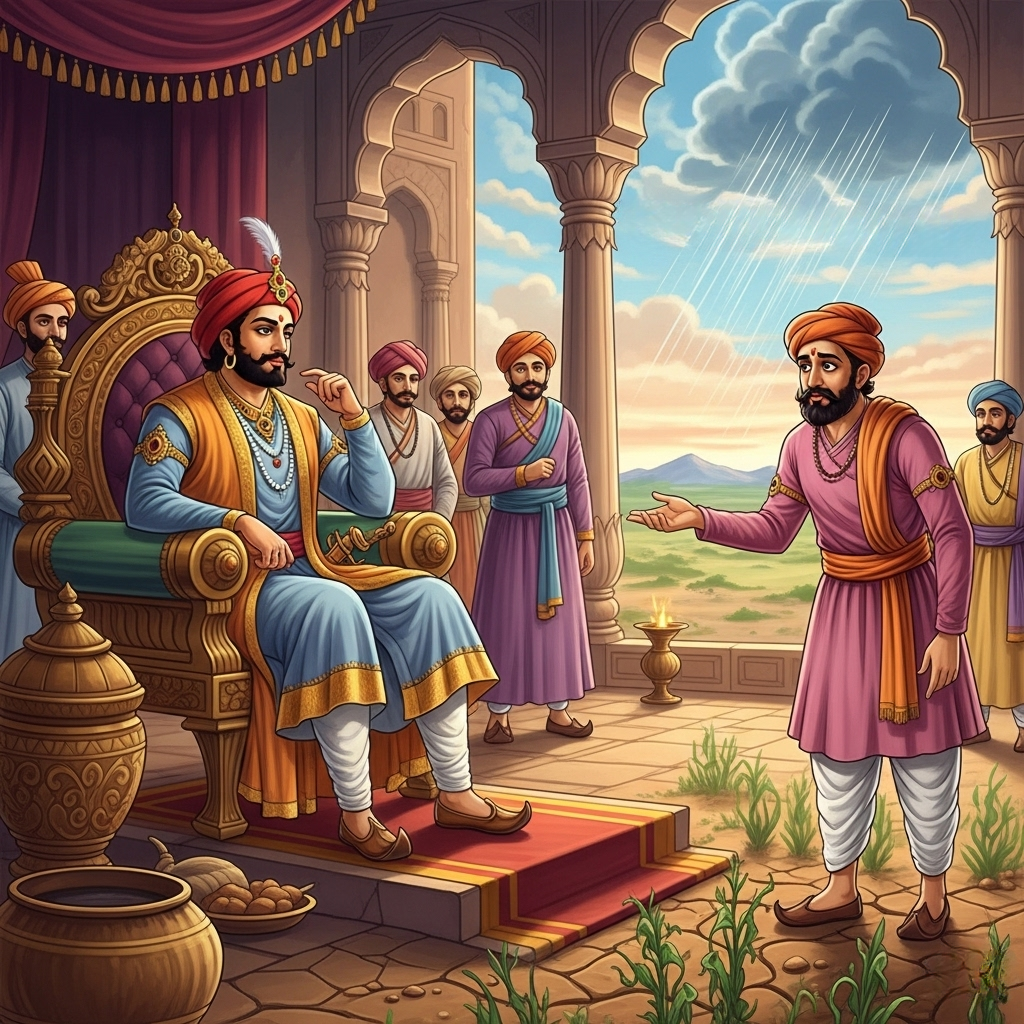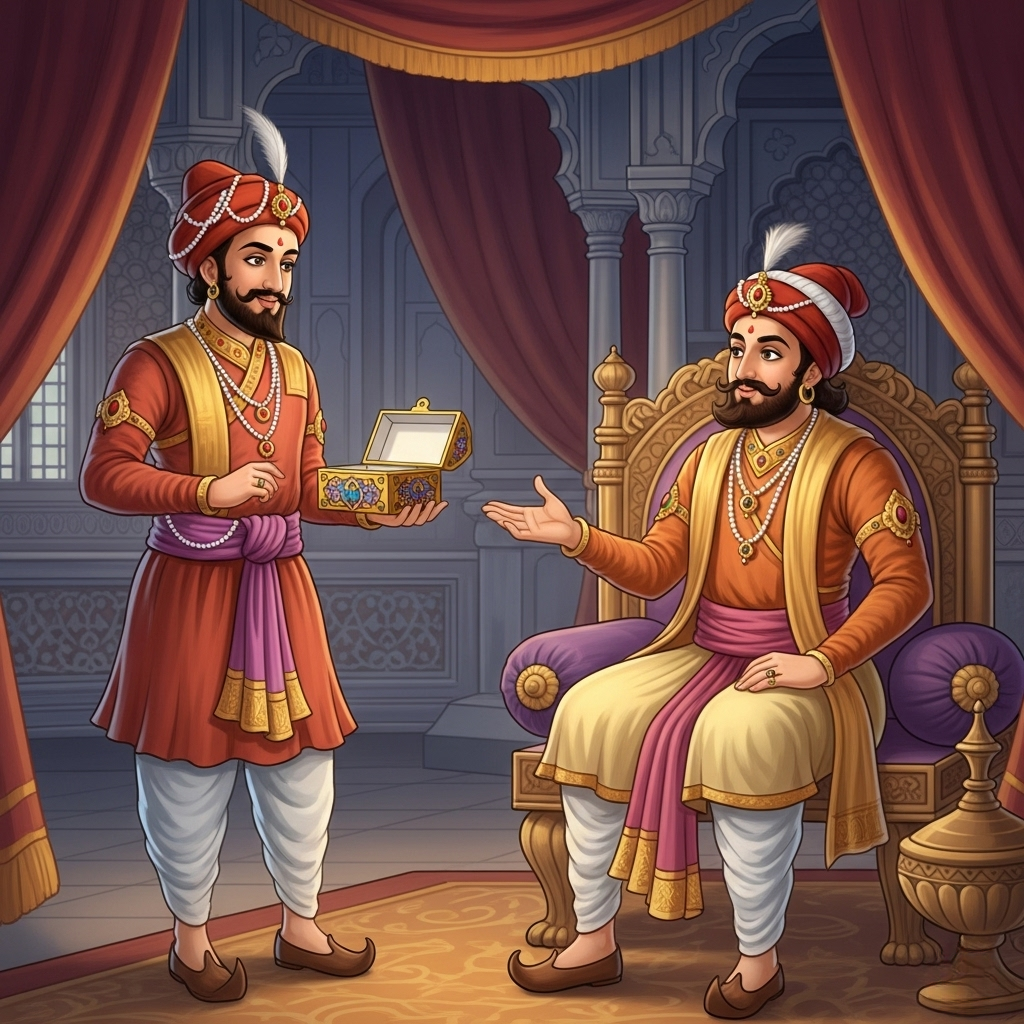
The Rain That Didn’t Fall

One morning during court, a weary farmer arrived before Emperor Akbar with an unusual complaint.
He bowed and said, “Your Majesty, my crops have failed this season because there was no rain. I seek compensation from the royal treasury.”
The courtiers were puzzled. Akbar chuckled and replied, “You ask me to pay for the rain that never came? Am I now expected to command the skies?”
Laughter echoed through the court.
But Birbal remained quiet, studying the situation. After a pause, he stood and spoke gently, “Your Majesty, may I remind the court of something important?”
He continued, “When harvests are good, we often take credit saying the empire is flourishing under royal rule. We boast of prosperity as a reflection of leadership. If we take praise for every grain grown, is it not fair that we also share the sorrow when the fields run dry?”
The court fell silent. Even Akbar’s smile faded into a thoughtful expression.
Birbal concluded, “True leadership does not just wear the crown in seasons of abundance. It must also shoulder responsibility in times of hardship. We cannot claim success without owning our share of failure.”
Akbar nodded slowly. “You speak wisely, Birbal. We must lead with both pride and humility.”
Though the farmer did not receive direct compensation, Akbar ensured relief was sent to drought-affected regions not out of guilt, but out of responsibility.
Moral: You can only claim credit if you are equally willing to accept blame.


